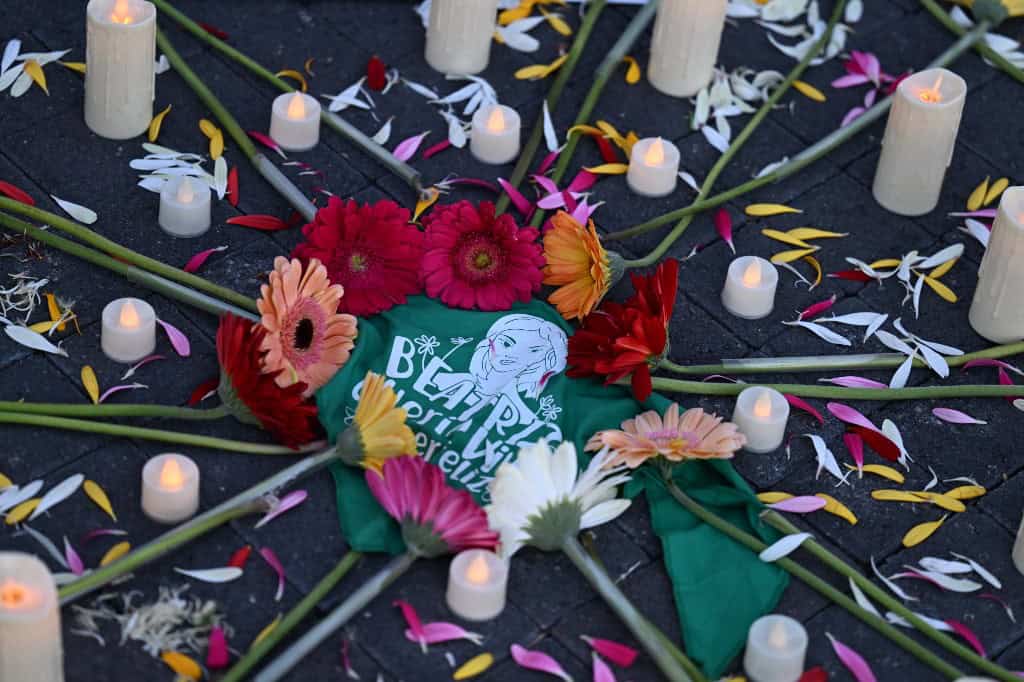The Inter-American Court of Human Rights condemned El Salvador this Friday for denying an abortion in 2013 to a woman, publicly known as Beatriz, despite her life being at risk and the fetus having a congenital malformation. For the first time, the continental court ruled on a case related to abortion, which is prohibited in El Salvador under any circumstances with prison sentences of two to eight years, but usually interpreted by justice as aggravated homicide, carrying penalties of up to 50 years in prison.
“The (Salvadoran) State is responsible for violating the rights to personal integrity, private life, and health (…) to the detriment of Beatriz,” indicated the continental court, based in San José. “I believe this is total justice,” Delmy, Beatriz’s mother, said from San Salvador after learning of the sentence, which she described as “a triumph.”
Beatriz, a pseudonym used to protect the woman’s identity, was 22 years old and suffered from systemic lupus erythematosus, an autoimmune disease. At 12 weeks of pregnancy, her fetus presented anencephaly, the absence of brain development.
“The State is responsible for violating the victim’s right to judicial protection” when the Salvadoran Constitutional Court denied her petition for abortion, said the Court. After 81 days from the abortion request, Beatriz went into labor and had to undergo emergency cesarean section at 26 weeks of pregnancy. The baby died five hours later.
In an exclusive interview in 2013 from the hospital in San Salvador where she was admitted, Beatriz said: “I want the cesarean, first for my health and because the child won’t live. What they have done to me isn’t right, they have made me suffer.”
Justice Prevails
Beatriz, who died in 2017 in a traffic accident, had already had a first pregnancy in 2011 that was complicated by preeclampsia (hypertension during pregnancy) related to her autoimmune disease, which forced doctors to perform a cesarean section to save the fetus’s life. After 38 days in hospital, the baby survived.
“What we really want is for other women not to suffer what my sister had to go through,” Beatriz’s brother, who preferred not to reveal his identity, said in 2023 during the start of hearings at the Inter-American Court. Beatriz was from the town of La Noria Tierra Blanca, about 100 km southeast of San Salvador. Her case is just one example of the situation of women, especially those with low resources, in countries where abortion is prohibited.
“Beatriz’s underlying medical condition required a special duty of protection from the State, through the provision of diligent and timely medical care” and she did not receive it, the sentence emphasized. In San Salvador, feminist activists received the ruling with joy. “Justice prevails. We are happy, today December 20 is a day that has gone down in history for women’s reproductive justice,” said lawyer Angélica Rivas from the Feminist Collective.
In Latin America, abortion is legal in Argentina, Colombia, Cuba, Uruguay, and in some states of Mexico. In Chile, it is illegal with the exception of risk to the mother’s health, rape, or fetal malformations. In El Salvador, Honduras, Nicaragua, Haiti, and the Dominican Republic, it is absolutely prohibited.
Reparation Measures
Beatriz’s mother now hopes that “the State complies with what the Court ordered so that this case is not repeated” in any other woman in her situation. The Court ordered as reparation measures that, to ensure a similar case does not occur again, El Salvador “must adopt guidelines and action protocols for medical and judicial personnel regarding pregnancies that risk the mother’s life or health.”
It must also adopt measures that guarantee “legal security in handling situations like the present case.” After Beatriz’s situation, El Salvador changed several protocols for the care of pregnant women, however, the Court considered that “gaps persist in the regulations for adequate and timely attention to cases like Beatriz’s.”
The Salvadoran government received the sentence “with responsibility” and will “deeply analyze the scope and recommendations” of the continental court within the framework of “national legislation,” indicated Presidential Commissioner for Human Rights, Andrés Guzmán, in a statement.






